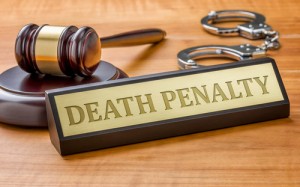Supreme Court overturns Florida's advisory death-penalty scheme in 8-1 decision

Photo from Shutterstock.
The U.S. Supreme Court has struck down Florida’s death penalty sentencing scheme in which jurors make capital-punishment recommendations and judges make the final decision.
In an 8-1 decision, the Supreme Court said Florida’s sentencing scheme is unconstitutional because the Sixth Amendment requires jurors, rather than judges, to find each fact necessary to impose the death sentence. Justice Sonia Sotomayor wrote the majority opinion (PDF), and Justice Samuel A. Alito Jr. dissented.
The court ruled in the case of Timothy Lee Hurst, who was sentenced to death for the May 1998 murder of a Popeye’s restaurant manager.
Under Florida’s system, juries render an “advisory sentence” by a majority vote after an evidentiary hearing, without specifying the factual basis for their recommendation. The judge then considers aggravating and mitigating circumstances and decides whether a death sentence is warranted. The judge isn’t bound by the jury’s determination, but he or she must give it “great weight.”
Sotomayor said the sentencing scheme is unconstitutional under the 2002 decision Ring v. Arizona, which held that capital defendants are entitled to a jury determination of aggravating circumstances making them eligible for the death penalty.
Advisory juries weren’t part of the sentencing scheme strung down in Ring, but that distinction is immaterial, Sotomayor said.
“The Sixth Amendment protects a defendant’s right to an impartial jury,” Sotomayor wrote. “This right required Florida to base Timothy Hurst’s death sentence on a jury’s verdict, not a judge’s fact-finding.”
Alito said he would reconsider Ring v. Arizona, and if it is assumed to be correct, he would not extend it. In any event, Alito said, any error was harmless in Hurst’s case because the evidence in support of the aggravating factors was “overwhelming.”
Alito cited the trial judge’s opinion, which said the murder was “conscienceless, pitiless, and unnecessarily torturous.”
Related articles:
ABAJournal.com: “Supreme Court considers Florida’s advisory death penalty system, juvenile sentencing”
ABA Journal: “Will the Supreme Court ‘peck away at’ capital punishment?”
ABAJournal.com: “ABA asks SCOTUS to overturn Florida law allowing divided juries to recommend death penalty”
ABAJournal.com: “SCOTUS to consider constitutionality of Florida capital sentencing; judges decide mental disability”



